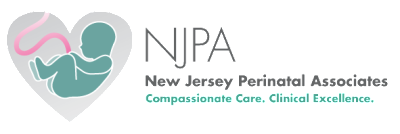Tylenol Use During Pregnancy
There have been a lot of headlines in the newspapers and television news segments discussing the link between Tylenol use in pregnancy and attention deficit hyperactivity disorder (ADHD) in children. Just as another recent association study released earlier this year involving induction of labor and autism, this study has led to many questions from our patients. As we suggested with the last association study, association does not mean causality. So let’s look at the data before we withhold Tylenol from pregnant women with fevers or teething babies.
Tylenol During Pregnancy Linked to ADHD in Kids
The study was published in JAMA Pediatrics in February of 2014. This was an observational study whereby researchers studied a cohort of over 64,000 pregnant women from Denmark from 1996 to 2002. Computer assisted telephone interviews were used to collect data at three times during the pregnancy (once each trimester) and again 6 months after delivery. The women were asked about pain medication use with each phone call, specifically which medication and for how many weeks. The researchers then looked at the medical records of the children born to these women, specifically for a diagnosis of hyperkinetic disorder, whether prescriptions for ADHD medications were given, and the tendency for ADHD behavior based upon a development questionnaire completed by the parents when the child was seven years old. The study found that mothers who used Tylenol were more likely to have children diagnosed with hyperkinetic disorder (37%) or ADHD (13%), and more likely to have been given a prescription for ADHD medication (29%). The study also found that women who took Tylenol for more weeks during her pregnancy were more likely have one of the three outcomes above.
While these results are most used in the press and seem frightening, the numbers above represent the relative risk not absolute risk. When you look closer at the risk the differences in absolute risk are not as imposing. Women who used Tylenol had a 3.5% chance of having a child diagnosed with ADHD while those women who didn’t use Tylenol had a 2.5% chance.
Remaining Questions about Tylenol and ADHD
There are still many unanswered questions. The authors did not inquire about specific dosages, just how often mothers used the medication. Does a woman who uses one tablet of Tylenol per week for 20 weeks of her pregnancy have the same risks as a woman who uses 8 tabs per day for 5 weeks in the first trimester? In addition, while they accounted for confounding factors such as fevers, inflammation, and mental health conditions, they did not take all illnesses and genetic predispositions into consideration. It is quite possible many of these women have some condition which predisposes them to having a child with hyperkinetic disorder or ADHD. What is the mental makeup of someone who chooses to use Tylenol with even the mildest of headaches? Could this represent something predisposing them to having a child with ADHD?
Can Pregnant Women Take Tylenol?
As with all association studies we need to be careful to discern between association and causality. The authors themselves do not state that Tylenol use causes ADHD. Their conclusion is clear “Maternal acetaminophen use during pregnancy is associated with a higher risk for HKDs and ADHD-like behaviors in children. Because the exposure and outcome are frequent, these results are of public health relevance but further investigations are needed.”
In the meantime should pregnant women with a high fever (known to cause fetal harm) not use Tylenol to reduce the fever? Should pregnant women with a headache in the third trimester suffer in pain or resort to taking other pain relievers (Ibuprofen) known to have potential ill effects on the fetus? The answer is a resounding “NO.” While no medication can be considered 100% safe in pregnancy, Tylenol is one of the few medicines that has been safely used in pregnancy to relieve pain and reduce fevers. Until more information is available current practices should not change and pregnant women can continue to use Tylenol.
Comprehensive High-Risk Pregnancy Care in NJ at NJPA
If you have any questions about your pregnancy or are seeking care for a high-risk pregnancy in NJ, our team at NJPA is here for you. We work with expectant mothers and families at all stages of pregnancy, from conception to labor and delivery. At our high-risk pregnancy centers in NJ, we provide prenatal diagnosis services, care for medical complications of pregnancy, care for pregnancy-related complications, and preconception counseling, all focused on promoting the positive health of mothers and their babies. We want to help you enjoy your pregnancy to the fullest – contact us today to schedule an appointment with one of our perinatologists and get access to comprehensive high-risk pregnancy care in NJ!





